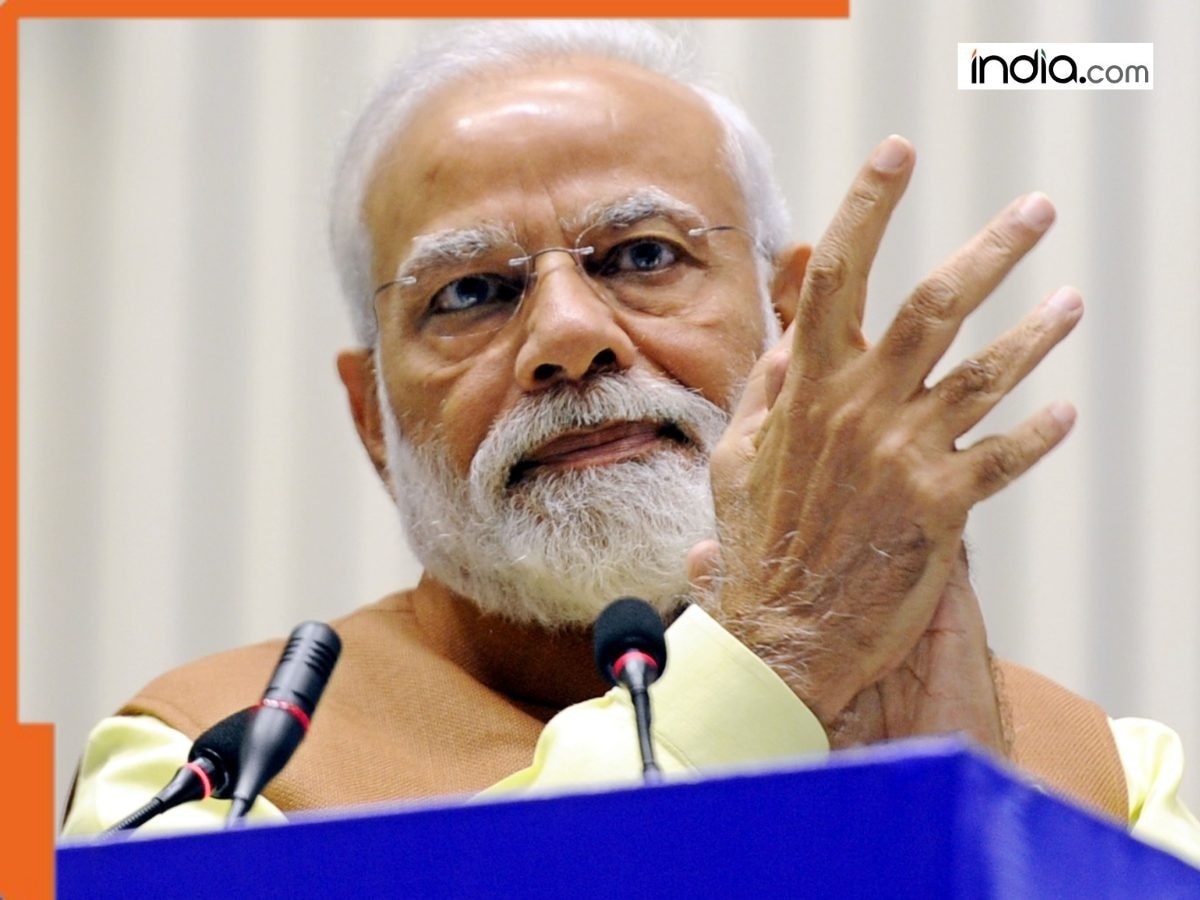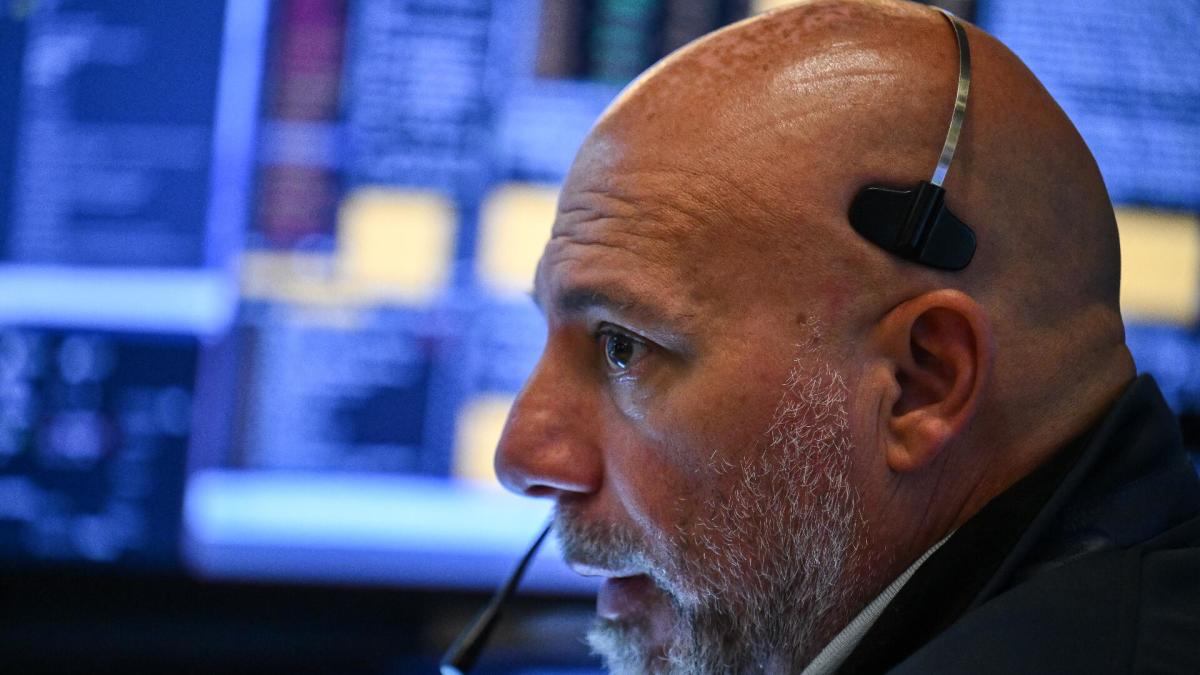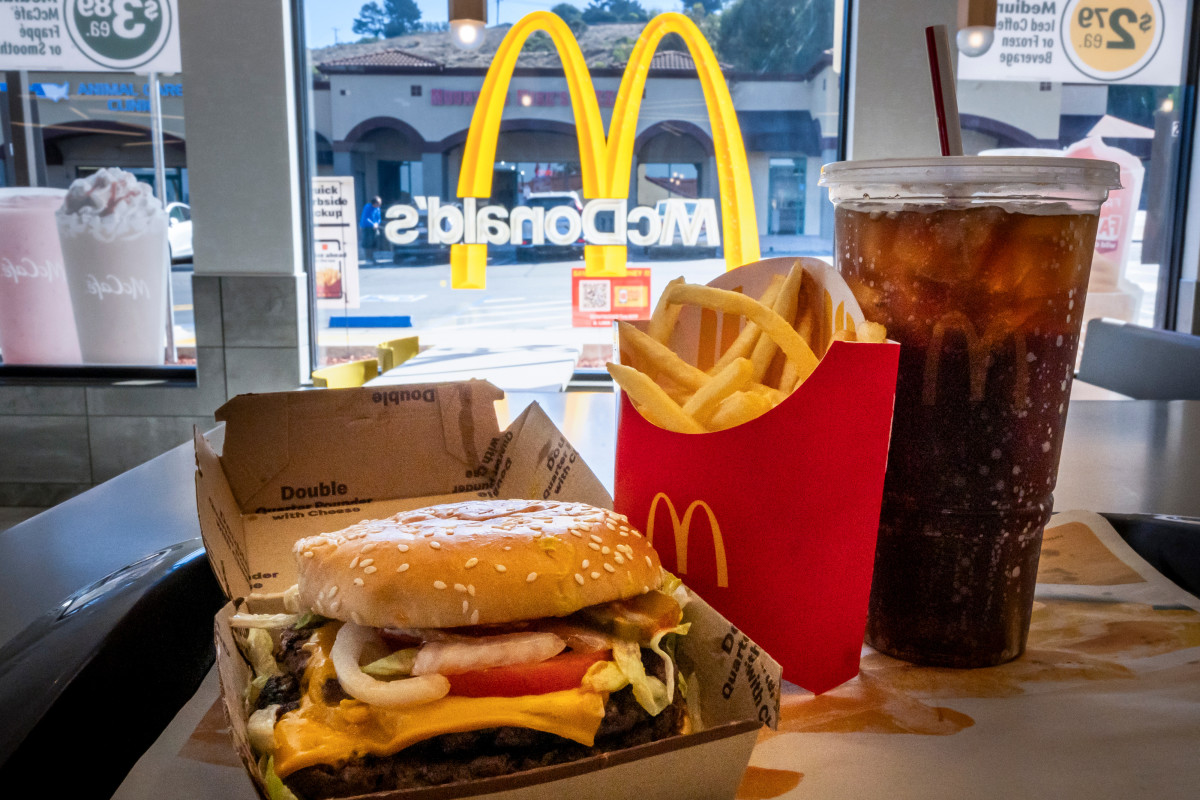25% of Americans Are Burned Out Before 30
The average person reports operating at half their stress capacity—already a concerning level for overall well-being. Even more troubling, 42% of respondents indicated feeling even more stressed than this baseline, with a notable generational divide emerging in the data. Gen Z and millennial ...

The average person reports operating at half their stress capacity—already a concerning level for overall well-being. Even more troubling, 42% of respondents indicated feeling even more stressed than this baseline, with a notable generational divide emerging in the data. Gen Z and millennial participants reported significantly higher current stress levels (51%) compared to their Gen X and older counterparts (37%). Broadcast Retirement Network's Jeffrey Snyder discusses the survey results with Van Darden, Talker Research
Jeffrey H. Snyder, Broadcast Retirement Network
(0:04) This morning on BRN, a quarter of Americans are stressed and burned out by age 30. (0:11) Joining me now to help break it all down is Van Darden of Parker Research. (0:16) Van, great to see you.
(0:16) Thanks for joining us on the program this morning.
Van Darden, Talker Research
(0:19) Thanks for having me.
Jeffrey H. Snyder, Broadcast Retirement Network
(0:20) Yeah. (0:20) And this, I got to say, I'm so glad you accepted our invitation to appear on the network because I think this poll is absolutely fascinating. (0:28) I know I feel like I'm under a lot of stress.
(0:30) I'm certainly not 30 years old, but according to the poll, a quarter of Americans are burnt out before they're 30. (0:37) I want to get your reaction to the survey that y'all did.
Van Darden, Talker Research
(0:41) Yeah. (0:42) You know, I guess in some ways, the results of the poll and the age that we kind of stumbled across isn't that surprising, really, if you think about it. (0:53) I think there's a growing sense, or at least an understanding, that the feeling of burnout is creeping younger and younger.
(1:04) And this data that we did at Parker Research, I think, proves that. (1:08) The biggest takeaway from our standpoint, or if there is anything surprising to say about this, is that the younger you are, the more likely it is that you burn out quicker. (1:21) And to put it a different way, younger people are burning out quicker than older people did at the same age.
(1:28) And we found that to be particularly notable.
Jeffrey H. Snyder, Broadcast Retirement Network
(1:32) And why do you think that is? (1:34) Is it just that they, you know, I was a young guy once in my career and I wanted to do everything. (1:41) I remember putting in, busting my butt, putting in a lot of hours.
(1:44) Is it the amount of hours, the time, the commitment, an indecision? (1:49) What's driving that higher rate of burnout versus when I was under 30, which, by the way, was a long time ago?
Van Darden, Talker Research
(1:57) Sure. (1:58) Yeah, that's a great question. (2:00) I think it really is.
(2:01) It is what everybody wants to know. (2:03) As we reported in the piece, finances were the most commonly ranked as the top factor leading to this. (2:12) I think that number was something like 30 percent reported that finances were their number one reason for stress and burnout.
(2:18) Politics, of course, inescapable in this day and age, work itself and then physical health were all factors that people listed. (2:28) And in that order, so finances, politics, work, physical health as significant sources for major worries for our respondent pool. (2:38) I don't think anybody's going to be surprised by those.
(2:41) I think that's very relatable. (2:42) I think the severity or the acuteness of the people who are feeling that stress and burnout is showing up and again, showing up earlier and earlier. (2:53) So whether it's social media and social pressure, the feeling associated with finances, whether it's inflation, a potential recession, debt, all of those kind of financial factors are certainly weighing on younger people earlier than older people who may not have felt that same pressure at that same age.
(3:23) I think another interesting thing, especially if you look, comparing and we did compare from a generational standpoint. (3:30) So looking at what we kind of say were younger people, Gen Z and millennials specifically, versus older people, which were Gen X and boomers just for the sake of this particular study. (3:43) Gen Z and millennials reported to us that they aren't as concerned with their social life and love life, while older generations say that balancing their life and personal growth goals were equally less important.
(3:58) So I think that was another surprising takeaway for us at Talker Research was the external factors. (4:06) Again, finance, politics, the work itself having a greater impact than, say, a social life, love life just aren't as important to younger generations this day and age.
Jeffrey H. Snyder, Broadcast Retirement Network
(4:19) So, Van, I'm sorry to interrupt. (4:21) Go ahead, Van, finish your thought. (4:23) I'm sorry.
Van Darden, Talker Research
(4:23) Just to say it was that just that struck us. (4:26) You know, you think about young people being social and dating, active, large friend groups, et cetera. (4:32) They're not focused on that.
(4:33) And they're certainly not finding that those elements to be a cause of stress. (4:36) All of, again, these external factors had a greater impact. (4:40) Older generations told us that balancing their life and, again, those kind of personal growth goals may be less important.
(4:45) Now, you can read into that and say, well, they're a little bit older. (4:49) Many of their goals may have already been met. (4:52) They may have reassessed or reprioritized certain things in life.
(4:57) So that may not be as surprising. (4:58) But again, if you think about, again, back when we were when we were young guys going out with your friends, being in the dating pool, et cetera, large amounts of stress. (5:07) Certainly that was true for me.
(5:09) And I can imagine you, too. (5:10) Not so much these days for the young people.
Jeffrey H. Snyder, Broadcast Retirement Network
(5:13) And then my follow up question, again, I apologize for stepping on you before. (5:19) What about it sounds like some of the social norms are changing, the cultural norms, but also expectations may be different. (5:27) I mean, when I came out of college, I had these high expectations of myself that I was going to be X, Y and Z.
(5:35) Actually, 30 years later, I don't think I've hit those expectations, but I still had them. (5:40) Do you think that some of that plays here with the survey results, what you expect, what you expect from society, what you expect from yourself in terms of work? (5:52) And that plays into some of the stress that people are feeling at a younger age.
Van Darden, Talker Research
(5:58) Well, absolutely, there's no there's no there's no question, I think our data shows that as well. (6:04) A huge number, just an extraordinarily large number. (6:07) I think it was 83 percent of everybody we surveyed, regardless of generation, told us that entering adulthood today is more challenging than it was even a decade ago.
(6:19) A decade ago was 2015. (6:21) The world has changed dramatically since then. (6:23) Even in that short time, everybody agrees that that entering adulthood and the challenges and even opportunities that come with that is more difficult than it used to be.
(6:35) And I think because people are telling us that they're burning out earlier in life, those stresses like finances, politics, et cetera, are going to continue to have an effect on upcoming generations. (6:48) I don't think anybody going forward is going to be immune from any of those those factors. (6:56) What can we do for the next generation, the gen alphas and beyond that?
(7:01) I think that's that's up for it's worth a really good conversation from a societal standpoint, a political standpoint, a financial health standpoint, because it's not going away. (7:13) And in fact, it's getting harder and harder earlier and earlier. (7:17) And what we're seeing is, again, leading to greater percentages of people feeling burnout even younger.
Jeffrey H. Snyder, Broadcast Retirement Network
(7:25) Yeah, that was going to be my next question to you is what are the mental health implications? (7:29) What are the societal implications that I guess policymakers, people need to be kind of focused on? (7:37) Because, you know, speaking for myself, I'm my biggest critic.
(7:41) I'm my worst critic, right? (7:43) We always want more for ourselves. (7:45) So I think a lot of people are professional themselves, but there's got to be some overall lessons.
(7:50) First of all, how do you address this from a mental health perspective at the state, local and federal level?
Van Darden, Talker Research
(7:55) Sure. (7:56) Well, I'm not a mental health expert and nor am I in politics. (8:01) So I can say, you know, just speaking.
Jeffrey H. Snyder, Broadcast Retirement Network
(8:03) You've got a checkmark in my in my book, then, in terms of the politics. (8:07) But anyway, that's a whole nother issue. (8:08) Go ahead.
(8:08) I'm sorry for interrupting.
Van Darden, Talker Research
(8:09) Well, I think. (8:12) I think, again, looking for opportunities to reduce the pressure, so whether it's, again, from a policy standpoint or a financial standpoint, we know inflation or a potential recession is going to just increase the stress that people feel. (8:28) So where are ways that we can reduce that?
(8:31) That's at a 30,000 foot or a societal standpoint locally or even individually. (8:37) What are some ask yourself, what are some questions, you know, what are some ways that you can do to reduce the debt that you may currently carry? (8:45) Right.
(8:46) What are some, you know, there's a long running joke about millennials eating avocado toast or why don't you just sacrifice that that extra cup of Starbucks? (8:58) Frankly, that's not going to really make a dent when we're talking about the average amount of debt that someone carries, whether on their credit card, medical, et cetera. (9:05) But in the grand scheme of things, reducing something like debt, for example, will reduce the stress or the burnout that you may you may be facing.
(9:14) Likewise, health. (9:14) What are some proactive steps that you can take to make yourself healthier, to set yourself up, your future self up for to enjoy a greater, healthier lifestyle that will reduce that kind of physical health, which, by the way, was among the most commonly selected or in the top five areas for burnout among all generations. (9:37) Physical health, which I didn't mention earlier, or at least we didn't we didn't really get into physical health, was among the most common topics for or reasons behind stress and burnout.
(9:49) I think that's really something to not lose track of. (9:52) But, yeah, we talk about, you know, getting to work on time and waking up early and getting the kids to practice and got to pay down the debt. (10:00) And am I going to have to, you know, refinance my house?
(10:02) And what about my aging parents and all of this kind of stuff? (10:05) Your physical health is a key part of that. (10:07) And every generation that we that we surveyed reported that.
(10:11) So back to your question, what are some ways that I can implement some things that I can do to to make myself feel better, to feel healthier? (10:19) That's physical. (10:20) We talked about mental health, taking breaks, stepping away, putting the phone down, going outside.
(10:27) You know, there's a common Internet joke about, you know, just go outside and touch grass. (10:31) I think there's probably something to that. (10:34) You go take a walk, get some, you know, get some fresh air, get some sunlight, all of these kind of things, physical effects, mental effects that will reduce that stress and burnout, getting better sleep.
(10:43) I think, you know, we didn't get into a lot of the weeds in this survey on steps that people could take. (10:51) I think we were more interested in the kind of rates and the reason why not so much what people do. (10:58) We're going to leave that to the experts, the mental, physical health experts, the financial experts, et cetera.
(11:03) But I think there are just some really common sense things that anybody can do, regardless of your ability, regardless of your place, to to reduce that stress and that and that leading towards that burnout over time.
Jeffrey H. Snyder, Broadcast Retirement Network
(11:18) Yeah, really, really well put. (11:21) And look, this is important. (11:22) I think that this sends a should send a message to a lot of people to personally to people you love to try to put things in perspective and try to do some of the things that we were talking about this morning.
(11:35) Then we're going to have to leave it there. (11:36) Great research. (11:37) Thanks for joining us.
(11:38) Thanks for the breakdown. (11:38) And we look forward to having you back on the program again very soon.
Van Darden, Talker Research
(11:41) Thanks for having me. (11:42) Anytime.
Jeffrey H. Snyder, Broadcast Retirement Network
(11:43) And don't forget to subscribe to our daily newsletter, The Morning Pulse for all the news in one place. (11:47) Details, of course, at our website and your subscription helps underwrite all this great BRN content. (11:54) And we're backing in tomorrow for another edition of BRN.
(11:56) Until then, I'm Jeff Snyder. (11:58) Stay safe, keep on saving and don't forget, roll with the changes.
What's Your Reaction?





















































